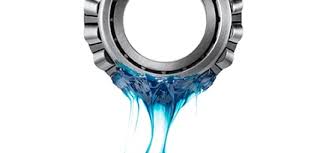The Fundamentals of Lubrication
In the intricate world of machinery and mechanical systems, there exists a fundamental principle that keeps the gears turning. Often overlooked but undeniably crucial, lubrication serves as the lifeblood of machinery, ensuring smooth operation, reducing friction, and extending the lifespan of vital components.
The Role of Lubrication
Lubrication serves multiple critical functions within machinery and mechanical systems:
- Wear Protection: By forming a protective film between surfaces, lubrication helps to prevent direct metal-to-metal contact, which can lead to accelerated wear and premature failure of components.
- Corrosion Prevention: Lubricants also act as a barrier against moisture and contaminants, helping to inhibit corrosion and prolonging the lifespan of machinery.
- Heat Dissipation: In high-speed or heavy-duty applications, lubricants aid in heat dissipation by carrying away excess heat generated during operation, thus preventing overheating and thermal damage.
Factors Influencing Lubricant Selection
Several factors must be considered when selecting the appropriate lubricant for a particular application:
- Operating Conditions: Factors such as temperature, pressure, speed, and load dictate the type of lubricant required to ensure optimal performance and longevity.
- Compatibility: Lubricants must be compatible with the materials used in the machinery, as well as with other lubricants and sealing materials present in the system.
- Internal components: Individual applications reqire specific product formulations such as extreme pressure (EP) additives to help protect against component wear.
- Environmental Considerations: Environmental factors, including exposure to water, chemicals, and contaminants, must be taken into account when choosing a lubricant to prevent degradation and maintain performance.
Best Practices for Lubrication Maintenance
To reap the full benefits of lubrication and ensure the reliability and efficiency of machinery, proper lubrication maintenance practices are essential:
- Establish a Lubrication Schedule: Develop a regular lubrication schedule based on equipment manufacturer recommendations, operating conditions, and performance requirements.
- Monitor Lubricant Condition: Regularly monitor the condition of lubricants through visual inspections, oil analysis, and condition monitoring techniques to detect signs of contamination, degradation, or wear.
- Proper Application Techniques: Follow proper lubrication procedures and techniques, including ensuring clean and dry surfaces, using the correct amount of lubricant, and applying it evenly across all contact points.
- Training and Education: Provide training and education to maintenance personnel on proper lubrication practices, including handling, storage, and application techniques. MDI offers onsite and virtual trainings to help better educate customers about the importance lubrication plays to thier organization.
Understanding the fundamentals of lubrication is essential for anyone involved in machinery maintenance or operation. Whether you're a seasoned engineer or a novice enthusiast, grasping the basics of lubrication can unlock a world of possibilities in optimizing machinery performance and longevity.






0 comments